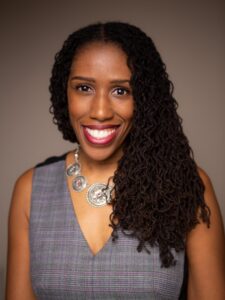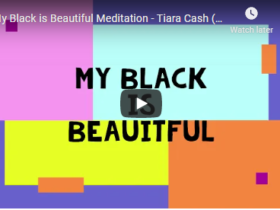
Elizabeth Hordge-Freeman, Ph.D., is an Associate Professor of Sociology and Senior Advisor to the President and Provost for Diversity and Inclusion at the University of South Florida. Her book, The Color of Love: Racial Features, Stigma, and Socialization in Black Brazilian Families (The University of Texas Press), was published in 2015 and she co-edited the volume Race and the Politics of Knowledge Production: Diaspora and Black Transnational Scholarship in the US and Brazil (Palgrave Macmillan, 2016). Dr. Horde-Freeman is a Fulbright Scholar, A Ruth Landes Fellow, and a grant recipient for her manuscript Second-Class Daughters: Informal Adoptions as Modern Slavery in Brazil. Her “Sweeter the Juice” YouTube series is a creative expression of her research brought to life and Cite Black Authors is excited to feature it!
Her video below, “From Diversity to Anti-Racism”, will be a good introduction to our conversation.
Q: Can you tell me more about your channel?
A: Sweeter the Juice is an online web series that is a celebration of Black experiences around the world. The series focuses on how racism and colorism (among other issues) shape Black communities, with an emphasis on their impact on Black women and families. This pioneering series recognizes that Black communities around the world are connected, so it includes international guests (with interviews in English, Spanish, and Portuguese) who highlight the linkages between global Black communities.
Q: Why did you start this series and what topics do you plan to cover in the future?
A: I started this series because I wanted to leave people feeling empowered and inspired by discussing current events and highlighting individuals, initiatives, and companies who challenge negative stereotypes and promote racial equality. So much that is written online is negative and I wanted to counteract that.
I started it in May 2020 and I plan to record new episodes about colorism, race in Brazil, Afro-Latinos, cultural appropriation, Black women and vulnerability, the “natural hair” journey, Black hair in the workplace, and Black artists.
Q: How have the events of this year influenced the content you produce and your field of study?
A: The protests and murders of Black people in the US and Brazil, more recently, inspired me to do this. At the same time, my research is on racism so it was a natural extension to create this as an outlet for me to talk to a wider audience. The urgency of this moment compelled me to actually launch this project which I had been thinking about doing for years.
Q: Your research includes a focus on intersectionality and critical race theory. How should upcoming researchers approach this topic today and how has it shaped your own worldview?
A: As a Black woman, intersectionality reflects my lived experiences and is central to my theoeretical orientation. From my studies of how racism shapes families, explorations of researcher positionality, and exploitative adoptions all of these topics center Black women in a way that highlights the role of status, class, nationality, among many other identities in their lives. Researchers should engage intersectionality in a way that decenters whiteness and leads to a more complex understandings of how domination and resistance function in the lives of Black women, especially.
See Dr. Hordge-Freeman’s Listing in Our Database
Would you like to write for Cite Black Authors? Send us a note on our Contact Us page.


